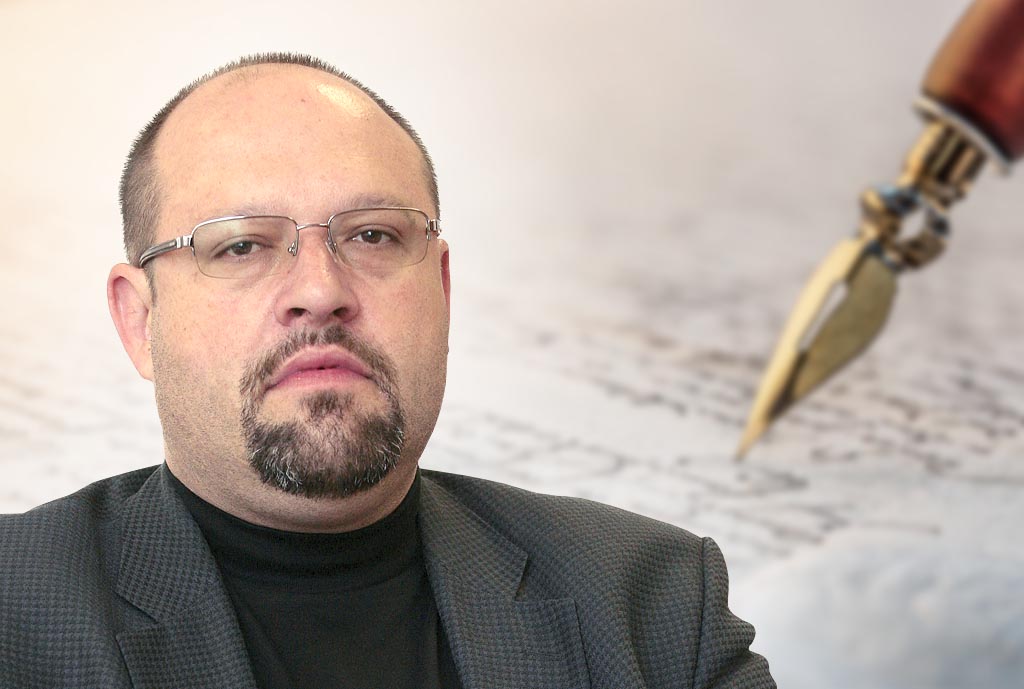By: Dr Matevž Tomšič
With “depoliticisation” tailored to the Gibanje Svoboda party, it is similar to what once was with the communist revolution. For true communists, it was never over. Not even after they banned any political opposition, killed, or exiled “traitors” and “class enemies”, nationalised most of the private property, and assumed complete control over all social spheres. There was always a bourgeois, kulak, cleric, or reactionary hiding somewhere, who could tarnish the “people’s power”. Therefore, one had to be vigilant, always ready to identify, expose, and appropriately punish such disruptors.
Even the current authorities have key institutions in the country under control. But this is not enough for them. So, on public radio and television, they were not satisfied with placing their people in management bodies, directorial, and editorial positions. No, those journalists who are disruptive and are already in the minority must be degraded, harassed, humiliated, and thus forced to leave.
They have a similar attitude towards the highest guardian of the constitution, namely the Constitutional Court. There, too, they secured a majority, which ultimately enabled them to “depoliticise” the national public broadcaster. However, they seem to be bothered by the fact that there are constitutional judges who publicly, with dissenting opinions, reject the majority decisions of their colleagues.
Thus, a political-media campaign was launched against Constitutional Judge Klemen Jaklič a few days ago. It was evidently a coordinated attack by the central pro-regime media, which can be inferred from the fact that contributions with nearly identical content appeared in multiple places almost simultaneously. The culmination of this was the call by the President of the Parliament, Urška Klakočar Zupančič, for his resignation. And what was the declared reason for this? It “revealed” that the aforementioned constitutional judge had his own independent contract for several years, i.e., the status of a self-employed entrepreneur. According to critics, he should not have had it, arguing that the law on judicial service does not allow it.
HE IS, IN FACT, A TOP EXPERT AND INTELLECTUAL, A DOUBLE DOCTOR OF SCIENCE, WHO TAUGHT AT THE RENOWNED HARVARD UNIVERSITY. HOWEVER, HIS IDEOLOGICAL PROFILE IS PROBLEMATIC. EVEN BEFORE HE ASSUMED HIS CURRENT POSITION, HE WAS OFTEN CRITICAL OF THE CURRENT STATE OF SLOVENIAN SOCIETY IN HIS PUBLIC APPEARANCES AND WRITINGS, ARGUING COHERENTLY AGAINST WHAT THE DOMINANT LEFTIST DISCOURSE ADVOCATES.
But they completely missed the mark. Their legal amateurism has been completely exposed. This is especially problematic in the case of a leading politician of the central legislative body, who is even a former judge – but it also shows who can ascend to the highest state positions today. They referred to the wrong law. Matters related to the functioning of constitutional judges are not regulated by the law on judicial service, but by the law on the Constitutional Court. This explicitly allows them additional engagement, namely in the educational and scientific research fields regardless of the formal form of that engagement. And that is precisely what Judge Jaklič is involved in. So, the situation is entirely clear. It is undisputed that he did not violate any rules with his additional work.
And although these accusations have proven to be completely out of place, attempts to create a scandal based on them still persist. Now they have turned into cheap moralising, implying that it is not “appropriate” for a constitutional judge to conduct his activity as an independent contractor. But why not? As if what matters, the content and quality of what he does, do not count. Engaging in scientific and educational work in this case is not only permissible but highly desirable.
Of course, it is no coincidence that such attacks are aimed at the aforementioned constitutional judge. He is, after all, a top expert and intellectual, a double Doctor of Science, who taught at the renowned Harvard University. However, his ideological profile is problematic. Even before assuming his current position, he was often critical of the current state of Slovenian society in his public appearances and writings, cogently rejecting what the dominant leftist discourse advocates. Even now, his (mostly dissenting) separate opinions in individual decisions of his institution serve as an example of exceptional constitutional reasoning. But their content is not to the liking of those who wish to “depoliticise” everything possible.

